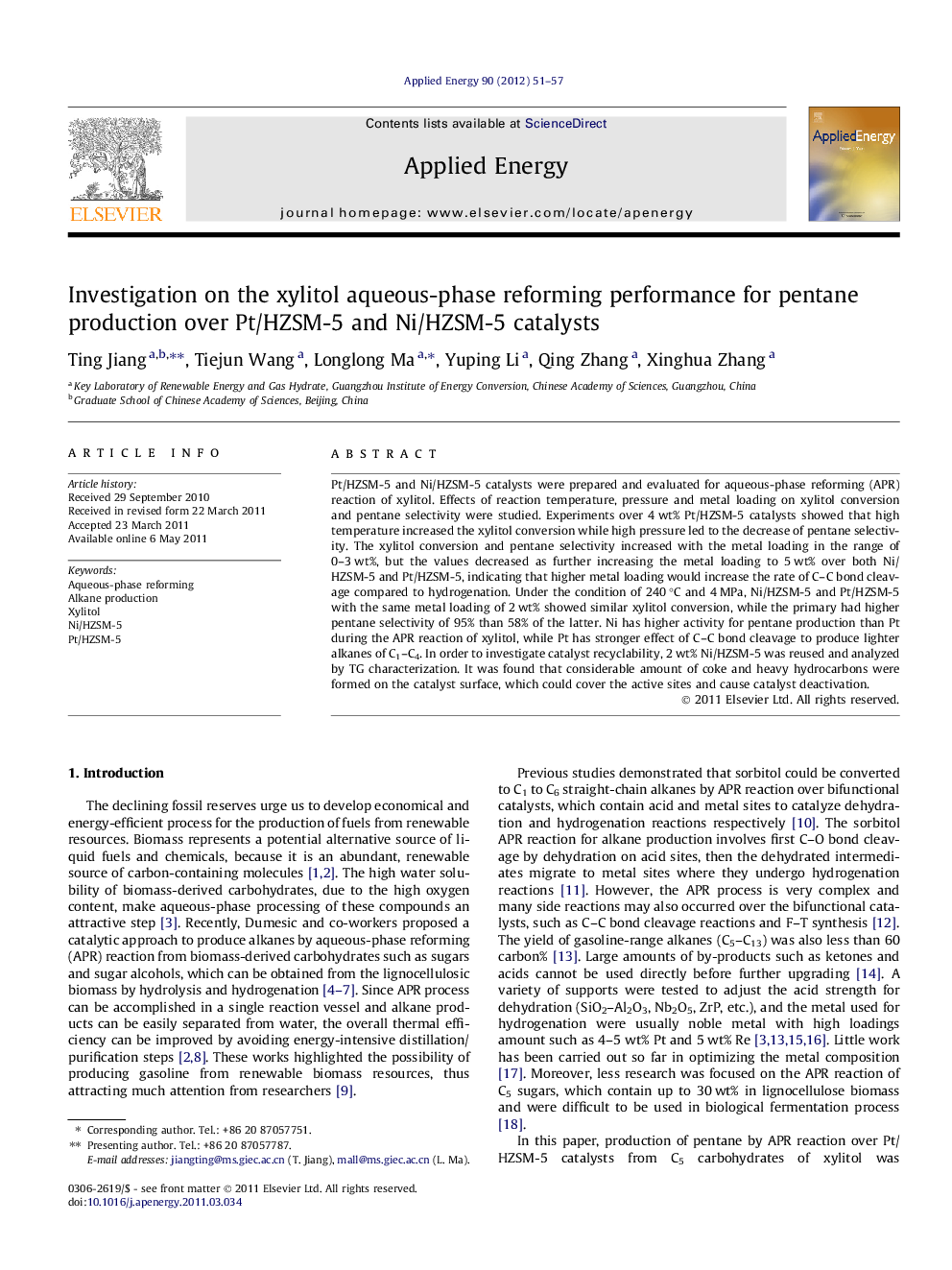| کد مقاله | کد نشریه | سال انتشار | مقاله انگلیسی | نسخه تمام متن |
|---|---|---|---|---|
| 243903 | 501939 | 2012 | 7 صفحه PDF | دانلود رایگان |

Pt/HZSM-5 and Ni/HZSM-5 catalysts were prepared and evaluated for aqueous-phase reforming (APR) reaction of xylitol. Effects of reaction temperature, pressure and metal loading on xylitol conversion and pentane selectivity were studied. Experiments over 4 wt% Pt/HZSM-5 catalysts showed that high temperature increased the xylitol conversion while high pressure led to the decrease of pentane selectivity. The xylitol conversion and pentane selectivity increased with the metal loading in the range of 0–3 wt%, but the values decreased as further increasing the metal loading to 5 wt% over both Ni/HZSM-5 and Pt/HZSM-5, indicating that higher metal loading would increase the rate of C–C bond cleavage compared to hydrogenation. Under the condition of 240 °C and 4 MPa, Ni/HZSM-5 and Pt/HZSM-5 with the same metal loading of 2 wt% showed similar xylitol conversion, while the primary had higher pentane selectivity of 95% than 58% of the latter. Ni has higher activity for pentane production than Pt during the APR reaction of xylitol, while Pt has stronger effect of C–C bond cleavage to produce lighter alkanes of C1–C4. In order to investigate catalyst recyclability, 2 wt% Ni/HZSM-5 was reused and analyzed by TG characterization. It was found that considerable amount of coke and heavy hydrocarbons were formed on the catalyst surface, which could cover the active sites and cause catalyst deactivation.
► Ni/HZSM-5 and Pt/HZSM-5 catalysts for pentane production by APR processing of xylitol.
► Low hydrogen pressure and metal loading below 3wt% favor the pentane selectivity.
► Pt exhibited stronger cleaving of C-C bond than Ni for lighter alkane formation.
► Alkane selectivity was controlled by coupling of C–O cleavage, C–C cleavage and hydrogenation.
Journal: Applied Energy - Volume 90, Issue 1, February 2012, Pages 51–57